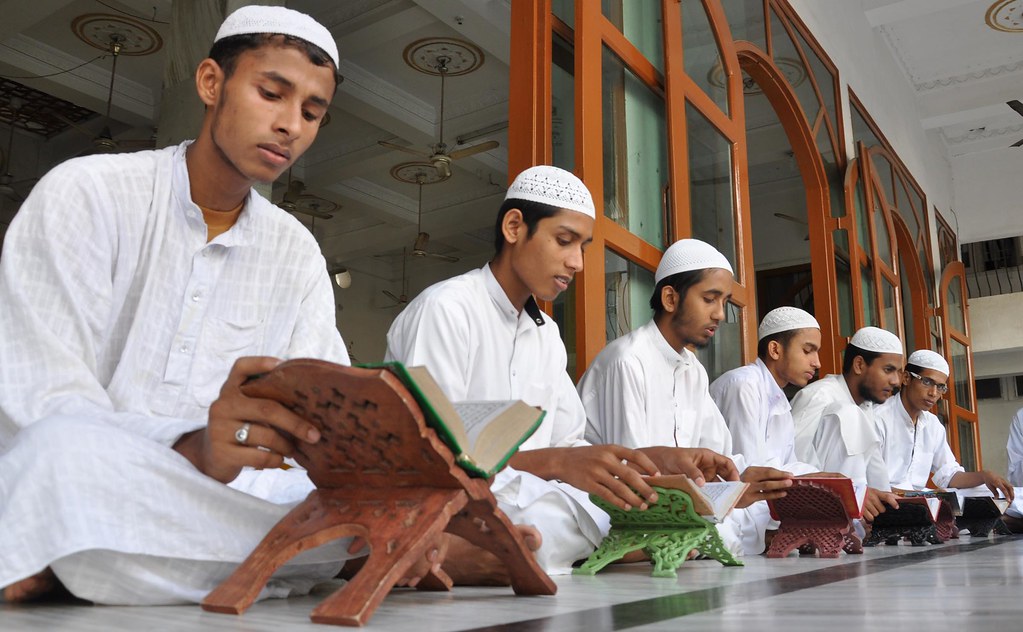Introduction to Islamic Culture and the Importance of Names
Muslim Boy Names A to Z. Mustafa, Ali, Abdullah, Abu Baker, Umer, Amir, Zaid, Muhammad, Ahmad, Husnain. Husain, Usman, Usama, Afzal, Fawad, Nizar, Daud, Luqman, Muntasir, Rafi, Ayyub, Waqar
Step into the enchanting world of Islamic culture and tradition as we embark on a journey through Muslim boy names A to Z. Names hold a special significance in the rich tapestry of Islamic heritage, reflecting not just identity but also values, beliefs, and aspirations. Join us as we delve into the captivating history, meanings, and modern twists of Muslim boy names that resonate with beauty and depth. Let’s unravel the charm behind each name and discover the timeless allure they carry.
A Brief History of Islamic Naming Traditions

Islamic naming traditions have a rich history that dates back centuries. In the early days of Islam, names were chosen based on their meanings and significance in Arabic. Names often reflected qualities like strength, wisdom, or faith.
The practice of giving meaningful names continues to be a cherished tradition in Muslim communities worldwide. It is believed that a person’s name can influence their character and destiny, so choosing the right name is considered crucial.
In Islamic culture, names hold profound cultural and religious importance. Many Muslims choose names from the Quran or names of prophets and companions as a way to honour their faith and heritage.
Throughout history, Islamic naming traditions have evolved to incorporate diverse influences from different regions and cultures while still maintaining core principles of meaning and symbolism in names. This fusion has resulted in a beautiful tapestry of unique and meaningful names within the Muslim community.
The Significance of Meaning in Muslim Names

Muslim names hold deep significance as they often reflect the values, beliefs, and aspirations of the individual or their family. The meanings behind these names can be rooted in Islamic teachings, historical events, virtues, or even natural elements. For example, a name like Amir signifies leadership and command, while Zara translates to “princess” in Arabic.
Choosing a name with a meaningful interpretation is not just about its sound but also about the positive attributes it conveys. Parents may select names that inspire strength, like Kareem, which means generous, or wisdom, such as Hikmat, which translates to wisdom in Arabic. These meanings serve as a constant reminder for the child to embody those qualities throughout their life journey.
By understanding the significance of meaning in Muslim names, parents can bestow upon their children not just a word but an identity rooted in noble virtues and rich heritage.
Exploring Popular Muslim Boy Names A to Z

When it comes to popular Muslim boy names from A to Z, there is a vast array of beautiful and meaningful options to choose from. From classic names like Adam and Ahmed to more modern choices like Zayn and Yusuf, each name carries its significance in Islamic culture.
Names starting with ‘A’, such as Ali and Amir, are timeless favourites symbolizing strength and leadership. Moving on to ‘M’, you’ll find names like Mohammed and Musa that hold deep religious connotations honouring prophets.
As we reach the letter ‘Z’, names like Zain and Zakariya bring a sense of uniqueness while still preserving traditional values. Each name tells a story and holds a special place in the hearts of families who choose them for their sons.
Exploring this extensive list of popular Muslim boy names can be an enlightening journey into the rich tapestry of Islamic heritage.
Uncommon Yet Beautiful Muslim Boy Names A to Z
Uncommon yet beautiful Muslim boy names can add a touch of uniqueness and charm to your child’s identity. From A to Z, hidden gems are waiting to be discovered. Consider the name “Aariz,” meaning respectful or courageous, for a solid and admirable choice.
Delve into the letter B with “Bilal,” symbolizing purity and beauty in Islamic tradition. Moving on to C, explore the name “Cemil,” which signifies beauty and gracefulness in Turkish culture.
Venture into less familiar territory with names like “Kian”, representing kingship, or “Zayd”, signifying abundance and growth. Each name carries its special meaning, offering a glimpse into the rich tapestry of Muslim heritage.
Embrace these unique options as you search for the perfect moniker that reflects your values and aspirations for your little one’s future journey through life.
Modern and Unique Twists on Traditional Muslim Boy Names
In the modern world, parents are seeking unique twists on traditional Muslim boy names to give their sons a sense of individuality while still honouring their cultural heritage. One way to do this is by choosing names that have a modern feel or trendy sound yet still hold deep roots in Islamic tradition.
An example of this could be combining two traditional names to create a new one, such as Amir + Ibrahim = Amiri. This fusion of old and new can result in a name that is both meaningful and distinctive.
Another approach is selecting a traditional name but spelling it differently or adding a modern prefix or suffix. For instance, changing Mohammad to Muhamad or adding the prefix “Za” to Zayd transforms classic names into contemporary ones.
By embracing these modern and unique twists on traditional Muslim boy names, parents can celebrate their cultural identity while also reflecting their style and creativity when naming their precious baby boys.
Tips for Choosing the Perfect Name for Your Baby Boy
When it comes to choosing the perfect name for your baby boy, consider looking into the meanings behind different names. Think about what values and characteristics you want to instil in your child with their name.
Explore various cultures and regions for inspiration. You might find a unique and beautiful Muslim boy name that resonates with you from a different part of the world.
It’s essential to think about how the name will sound when spoken aloud. Consider factors like pronunciation, flow, and potential nicknames associated with the chosen name.
Check if there are any significant historical or religious figures associated with the name you’re considering. This could add depth and meaning to your child’s identity.
Remember that trends come and go, so choose a timeless name that will age well with your son. Avoid overly trendy names that may fade out over time.
Consult with family members or friends for their input on potential names. They might offer valuable perspectives or suggest names you haven’t thought of before.
Trust your instincts when selecting a name for your baby boy. Choose a moniker that feels right to you and reflects the love and hopes you have for your child’s future.
Embracing Diversity: Muslim Names from Different Cultures and Regions
Muslim names reflect the rich tapestry of cultures and traditions across the globe. From Arabic to Urdu, Persian to Turkish, each language brings its unique flair to naming conventions.
In Arabic-speaking regions, names like Amir and Layla are popular choices for boys, carrying meanings of leadership and night, respectively. Moving towards South Asia, names such as Ayaan and Zara have gained popularity among Muslim communities for their meaningful interpretations.
Names originating from Persia, like Cyrus or Rumi, evoke a sense of history and sophistication. Turkish names like Emir or Elif offer a blend of tradition with contemporary appeal.
Exploring diverse naming options allows parents to connect with different heritages while celebrating the unity within Islamic culture. Whether it’s drawing inspiration from historical figures or nature itself, there is a world of possibilities when it comes to choosing a name that resonates with your beliefs and values.
9
When it comes to Muslim boy names, the number 9 holds a special significance in Islamic culture. In numerology, 9 symbolizes completeness and unity, making it a powerful choice for parents seeking a name with deep meaning.
Names like Amin, which means trustworthy or faithful, and Zayd, meaning abundance or growth, embody the qualities associated with the number 9 – strength, compassion, and wisdom.
Exploring Muslim boy names from A to Z can lead you to discover hidden gems like Yaqub (Jacob), representing resilience and leadership qualities inspired by Prophet Jacob’s story in Islamic tradition.
Embracing the spiritual essence of choosing a name rooted in faith can bring blessings and positivity into your child’s life journey. Consider diving deeper into the rich tapestry of meanings behind each name as you seek the perfect fit for your little one.
Remember that each letter in “Muslim Boy Names A to Z” carries its unique vibration and energy – let this guide you as you navigate through the vast array of options available within Islamic naming traditions.
FAQs
As you embark on the journey of choosing a Muslim boy name for your little one, remember that each name carries a rich history and significance within Islamic culture. From traditional names rooted in Arabic origins to modern variations that blend tradition with innovation, there is a wide array of options to explore.
By understanding the importance of meanings behind Muslim names and embracing diversity from various cultures and regions, you can find the perfect name that resonates with your values and beliefs.
Whether you opt for popular choices like Mohammed or Ali, unique picks like Zayd or Idris, or draw inspiration from different corners of the world, such as Turkish or Persian names, each name reflects the beauty and depth of Islamic culture.
Also Read: thespark shop boy & girl clothes online 2024



Pingback: The Mystery Behind 02045996818 Revealed - MSN WIRE